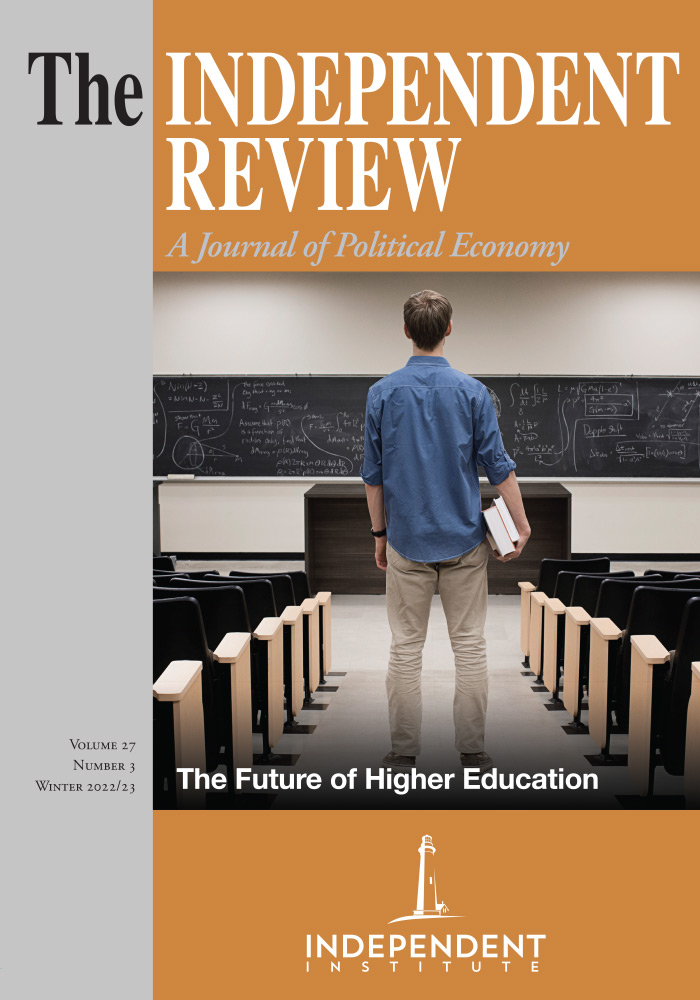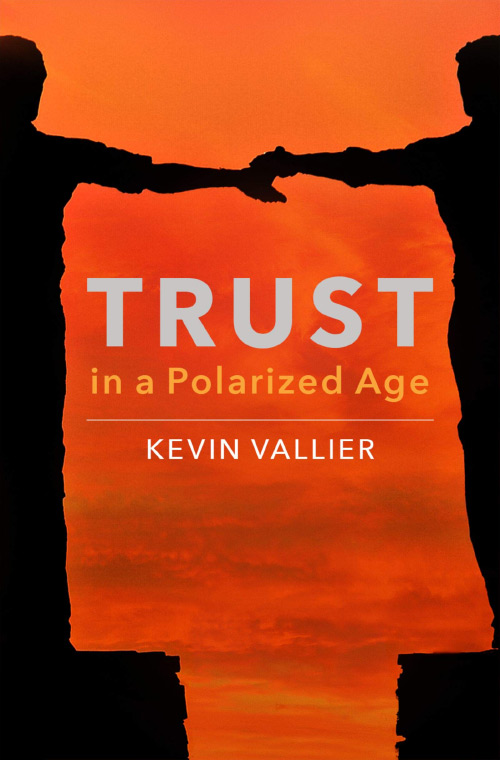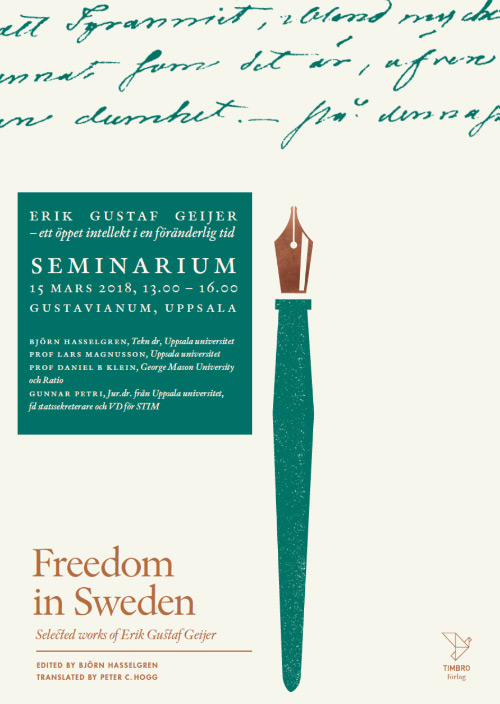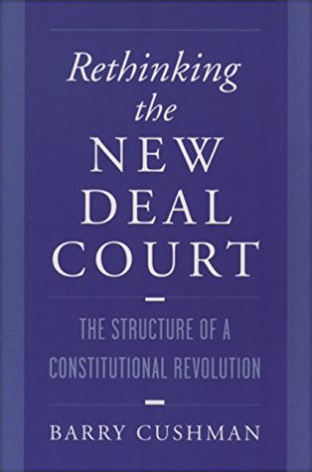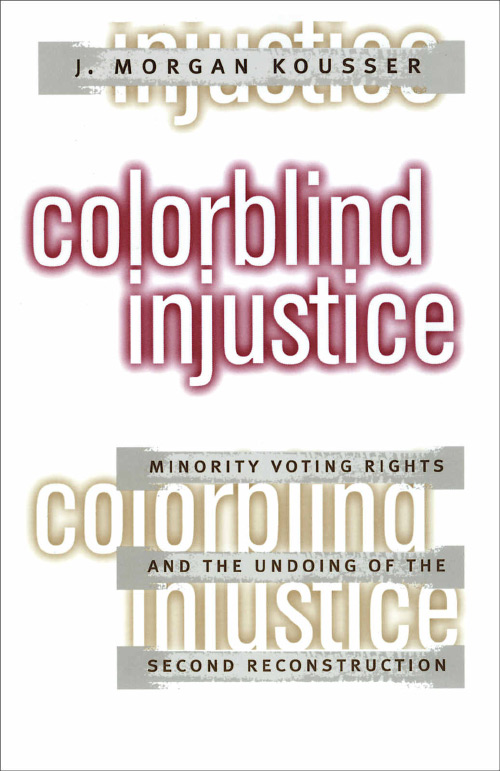For those who care about freedom, these are difficult times. Whether it has been the extension of state power courtesy of COVID or the sense that economic liberty is under siege across the globe, those who genuinely care about the growth and maintenance of free societies seem to be a small tribe indeed. These days, collectivists of the left and right abound.
Such circumstances, however, are not new. Those whom the French political philosopher Alexis de Tocqueville called “true friends of liberty” are never numerous. There have always been libertines (those who separate freedom from a concern for moral truth) as well as those anxious to radically curtail freedom in the name of authority or an ever-leveling equality. Few are those who have held fast to Lord Acton’s dictum: “Liberty [is] not ... the power of doing what we like, but the right of being able to do what we ought.”
Preserving liberty in this sense is difficult at the best of times, but perhaps especially complicated in conditions of modern democracy. That at least is how Tocqueville understood the problem, or so Olivier Zunz, author of a new biography, The Man Who Understood Democracy: The Life of Alexis de Tocqueville, argues.
A distinguished Tocqueville scholar, whose work includes editing the Library of America edition of Democracy in America, Zunz has made his book very much a work of biography. Some of the most important Tocqueville biographies penned in more recent decades, such as André Jardin’s Tocqueville: A Biography (New York: Farrar, Straus, and Giroux 1988), Hugh Brogan’s Alexis de Tocqueville: A Life (New Haven: Yale University Press 2007), and Jean-Louis Benoît’s Tocqueville (Paris: Tempus Perrin 2013), have made Tocqueville’s ideas their centerpiece. With Zunz, the balance shifts toward Tocqueville as a person.
Ideas—especially ideas about democracy—were central to Tocqueville’s life. But although Zunz pays attention to Tocqueville’s major works in which this theme is discussed, he generally explores Tocqueville’s reflections on democracy and its meaning for liberty and liberal politics through the type of lens more typical of classical biographies: family life, interactions with friends and foes, correspondence, and so forth. The effect is to bring out the many tensions inside and surrounding Tocqueville and the ways that he sought, not always successfully, to resolve them in his life, thought, and writings.
The other axis around which Zunz’s account revolves is his conviction that America remained a central focus for Tocqueville’s reflection on modern democracy long after he penned Democracy in America. This functions as a corrective to those scholars who have long argued that France and its problems were the priority for Tocqueville and that his reflections about America should be read through that lens. By contrast, Zunz maintains that Tocqueville’s interest in American democracy never took second place to his worries about and ambitions for his native land. To an extent greater than previous biographers, Zunz shows how Tocqueville followed the ups and downs of American politics far more closely than most scholars hitherto realized.
Another theme stressed by Zunz is Tocqueville’s effort to overcome the deep nineteenth-century chasm between liberalism and religion, specifically Christianity and even more particularly Roman Catholicism. Tocqueville’s attention to this subject is well-known, not least because of the attention that Democracy in America gave to the role played by religion in moderating and countering the egalitarian currents associated with democracy. Zunz, however, points to significant places that illustrate just how high a priority Tocqueville accorded to such a reconciliation. “What Tocqueville most wanted,” Zunz writes, “to accomplish in his political life, he told his friend Corcelle and his brother Edouard on several occasions, was to ‘reconcile the liberal spirit with that of religion, the new society, and the church’” (p. 208).
Tocqueville was acutely aware that one of the French Revolution’s most lasting impacts was to create “two Frances.” The first was associated with the Revolution itself. A distinct anticlericalism became part of its identity, something reinforced by the outright persecution of the Church during the Revolution’s early years. The second was Catholic France: one that tended to look back nostalgically to the ancien régime, associated itself with the cause of Bourbon legitimacy, and was inclined to regard the Revolution and all its works as the creation of godless philosophes.
In his person, Zunz demonstrates, Tocqueville embodied all the strains associated with this division. Though he came from an aristocratic Catholic family of legitimists from whom he drew most of his friends, Tocqueville did not waver in his embrace of the ideals of the Revolution. And although plagued by religious doubts that never quite left him, Tocqueville continued to practice his religion. Above all, Tocqueville’s dream was of religion in France assuming the various roles that he believed it played in mid-nineteenth-century American democracy: underpinning, for instance, the habit of association that he considered essential for limiting tendencies to centralization, or encouraging the virtues and moeurs that Tocqueville regarded as indispensable supports for liberty and democracy.
The gaps were possibly too large among the French, and the memories of wounds received during the Revolution still too fresh, for Tocqueville’s ambitions to be realized in the area. The reflexive anticlericalism of most of the republican left and the growing Ultramontanism of many on the Catholic right left Tocqueville in a party of almost-one, in which his only company were Catholic liberals like Charles de Montalembert. But the sheer number of problems assailing France in the 1840s and 1850s, accompanied by ongoing realignments across the political spectrum, was always going to make realizing such a goal difficult, if not impossible.
In the end, Tocqueville’s desire to bolster democracy’s advance into the future took him into the past: more specifically, a determination to comprehend the roots of the French Revolution, which had ushered in a new era of freedom and yet also gone badly wrong in so many ways. The most immediate fruit of that inquiry was Tocqueville’s The Old Regime and the Revolution. Its central point was that the trend to centralization of power in France was well underway long before 1789.
Tocqueville, Zunz stresses, read many commentators on the Revolution before immersing himself in this topic. That included some of the Revolution’s harshest critics like Joseph de Maistre. All that is well-known, but Zunz brings to light Edmund Burke’s influence on Tocqueville’s understanding of the Revolution. As everyone knows, Burke’s view of the Revolution was decidedly negative. Zunz shows, however, that Tocqueville absorbed a number of Burke’s specific insights into some of the Revolution’s features that helped explain the trajectory leading up to and following 1789.
Tocqueville believed that Burke had missed the Revolution’s universal implications, and even thought that Burke remained “buried in an ancient world.” For Tocqueville, the Revolution’s repression of the remnants of feudalism and the accompanying uplifting of liberty and formal equality before the law were real achievements.
Nonetheless, Tocqueville thought that Burke was on to something when he stated that the French were “not fit for liberty” (meaning that they had been too accustomed for too long to too strong a hand). He also agreed with Burke’s condemnation of the Revolution’s confiscation of church property. That, plus the 1790 Constitution Civile du Clergé that had magnified the state’s control of the Church, had turned many Catholics against the Revolution. More generally, Burke’s observation that the prerevolutionary continental philosophes’ tendency to abstraction and their detachment from the everyday realties of politics inclined them to top-down utopian schemes of reconstructing society made a deep impression on Tocqueville. It resulted, Zunz suggests, in an entire chapter of The Old Regime being focused on this point.
Tocqueville never wrote the projected follow-up volumes to The Old Regime. One was to be devoted to the Revolution itself while the other concerned the rise of Napoleon’s regime. His death from tuberculosis in 1859 put an end to these ambitions. This meant that Tocqueville did not see the end of Louis-Napoleon’s authoritarian Second Empire in 1870 or, Zunz stresses, the American Civil War that almost destroyed the America that he saw as a harbinger of a democratic future. In some respects, Tocqueville’s life ended with the consolations of family and religion, but also profound political disappointments.
For all his many successes, Tocqueville’s life, as presented by Zunz, comes across as one marked by considerable personal discontent and political frustration. The two were deeply intertwined, and the anxieties and doubts that never left Tocqueville no doubt made the burden even greater. For Zunz, however, these facets of Tocqueville’s life served a creative purpose insofar as they caused him to inquire ever more deeply and with persistent rigor into the phenomenon of democracy. As a consequence, Zunz concludes, Tocqueville “understood America so well that his work has helped Americans make sense of their democratic experiment” (p. 350). That perhaps is what made Tocqueville such a friend of liberty in his time and an indispensable guide for protecting and promoting freedom in ours.
| Other Independent Review articles by Samuel Gregg | |
| Spring 2025 | Freedom from Fear: An Incomplete History of Liberalism |
| Winter 2016/17 | Understanding Pope Francis: Argentina, Economic Failure, and the Teología del Pueblo |
| Fall 2014 | The Great Degeneration: How Institutions Decay and Economies Die |

